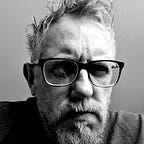Emmanuel Macron says he’s defending secularism — but is he also normalising Islamophobia?
(This article was originally scheduled for publication on an alternative platform on Thursday 29 October 2020. After the attacks in Nice, the article was put on indefinite hold. Given it is unlikely to now be published on that platform, it’s published here in its original form without any subsequent changes or amendments.)
France is currently in the grip of a crisis about secularism, freedom of speech and religious equality. What began at the start of October with President Emmanuel Macron’s announcement that his government will soon presentat his gov a draft bill against Islamic “separatism” has escalated to include international protests, cyber-attacks and widespread condemnation.
Exacerbated after the brutal beheading of school teacher Samuel Paty by a Chechen national in retaliation for him showing a cartoon of the Prophet Muhammad, Macron has continued to argue that such cartoons are fundamental to freedom of speech.
Central to this are France’s Muslims. As communities that have in recent years found themselves repeatedly placed under public and political scrutiny, there are fears that another crisis will encourage and normalise an already virulent Islamophobia in the country country. The attempted murder of two visibly Muslim women near the Eiffel Tower in Paris offers a chilling reminder of the reality of those fears.
Defending against ‘radical Islam’
Having initially announced the draft bill as being concerned with “Islamic separatism”, Macron responded to initial criticism by quickly re-framing his proposal as being more about “secularism”. Nonetheless, from the announcement it would appear the bill will seek to enforce direct state control over Islam in France. This includes having greater control of mosques, requiring imams to be trained and certified in France, and demanding Muslim organisations sign a “secular charter” before receiving state funding.
For Macron, this is because “radical Islam” is trying to conquer France. Announcing the plan, he said there is:
an open and proclaimed desire, a methodically organised intention to flout the laws of the Republic and create a parallel order, install other values, develop another organisation of society, separatist at first, but whose final objective is to take complete control of it. And this is what gradually leads to a rejection of freedom of speech, of conscience, the right to blasphemy.
Without doubt, Macron was making a thinly veiled reference to the 2015 attacks on the offices of Charlie Hebdo which saw Islamist-inspired terrorists taking revenge for publishing the same cartoons of Muhammad that Paty also showed. Responding to the latter’s murder, supporters voiced their support via the hashtag #JeSuisProf — Prof being a reference to Paty’s status — in the same way #JeSuisCharlie was used previously.
Criminalising French Muslims
In the same way political figures in France have used terror attacks for ideological gain, so too have they achieved similar by problematising Muslims. Back in 1989, three Muslim girls from Creil were suspended from school for refusing to remove their headscarves (hijabs) in class. Less than a year later, three more were suspended in Noyon. In the decade that followed, more than 100 other Muslim girls were also suspended.
The hijab was banned in public schools in 2004 and another law followed in 2010 banning the face veil — niqab — from being worn in public places. This was criticised as being Islamophobic at the time, but it was the 2016 decision to ban the burqini — shorthand for a full-body swimsuit preferred by some Muslim women — that was most shocking. Images of police issuing fines and enforcing the removal of “ostentatious” beachwear were met with outrage. Punished for wearing too much clothing, the principles of liberté, égalité and fraternité were clearly not applicable to all.
Normalising Islamophobia
This drip-feed problematisation of France’s Muslims has gone some way to normalising Islamophobia: something that many French Muslims are all too aware of. Following on from sharp increases in Islamophobic incidents in the wake of the Paris and Nice terror attacks in 2015 and 2016 respectively, many fear the same in the wake of Paty’s murder what with mosques in Beziers and Bordeaux have already been placed under police protection.
At a time when Islamophobia appears to be increasing, it is very worrying that the French interior minister, Gerald Darmanin has stated the intention to ban the Collective Against Islamophobia in France, an organisation that monitors Islamophobic hate crimes across the country.
Despite claiming to defend secularism, Macron’s ‘proposed laws’ will — like various bans prior to it — have the very real potential to undermine France’s secular principle of state neutrality in religious affairs. Seeking to control Islam in France — and by default, Muslims too — suggests that in the contemporary setting, secularism is concerned with more than merely separating state institutions from any religious equivalent. Here, the secular state is not only directly intervening but so too seeking to change religion.
The current vision for freedom of speech and religious equality is somewhat Animal Farm-esque. In the same way Orwell suggested some animals were more equal than others, so it would appear that in today’s France some religions — and those who adhere to them — are less equal than everybody else. While there can be no truck in wanting to safeguard and protect the Republic and its values, limiting the freedom of expression and ideas under the guise of protecting the very same is as contradictory as it is concerning.
